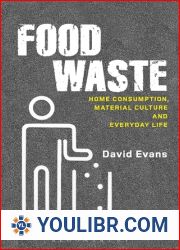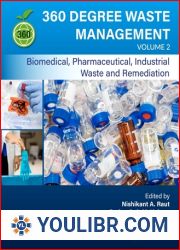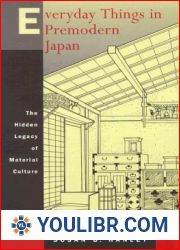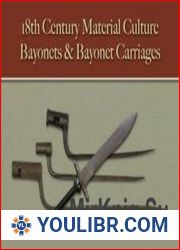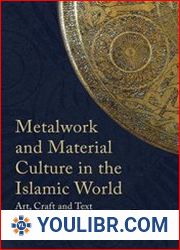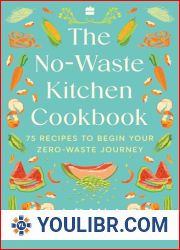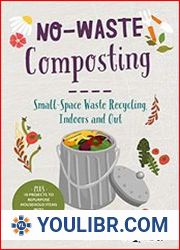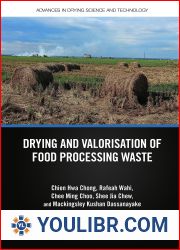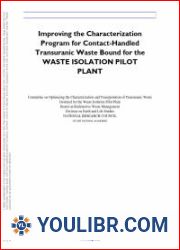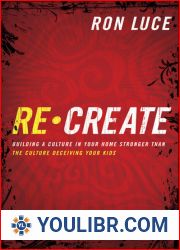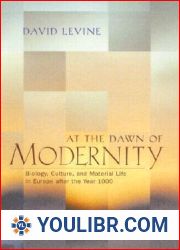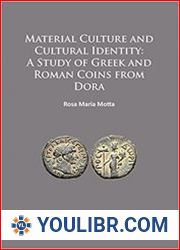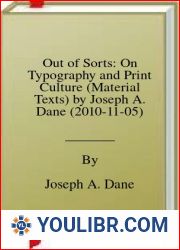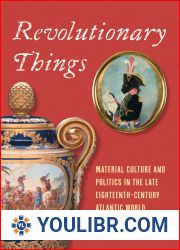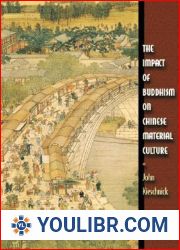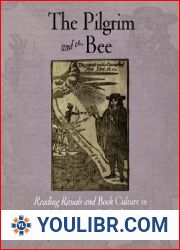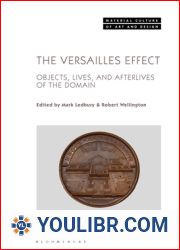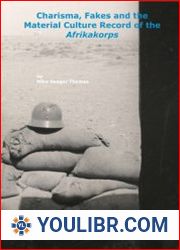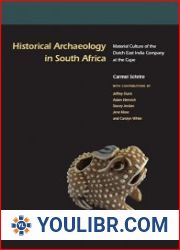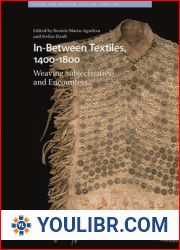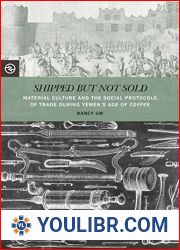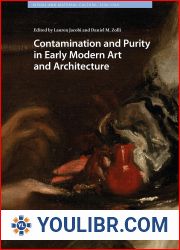
BOOKS - Food Waste: Home Consumption, Material Culture and Everyday Life (Materializi...

Food Waste: Home Consumption, Material Culture and Everyday Life (Materializing Culture)
Author: David Evans
Year: October 23, 2014
Format: PDF
File size: PDF 5.1 MB
Language: English

Year: October 23, 2014
Format: PDF
File size: PDF 5.1 MB
Language: English

Book Description: Food Waste Home Consumption Material Culture and Everyday Life Materializing Culture David Evans October 23, 2014 Pages: Genre: Non-Fiction, Sociology, Anthropology, Cultural Studies Overview: In recent years, food waste has become a pressing issue, garnering significant attention from politicians, activists, and the general public. However, until now, there has been no comprehensive scholarly analysis of the topic. Food Waste: Home Consumption, Material Culture, and Everyday Life fills this gap by exploring the processes that lead to food waste in households and consumers, and examining the reasons why surplus food ends up in the bin. The author draws inspiration from studies of consumption and material culture, as well as social science perspectives on everyday life and the home, to provide a nuanced understanding of the issue. This lively and well-researched book is ideal for students and researchers from a wide range of disciplines, as well as anyone interested in understanding the food we waste and why. Plot Summary: The book begins by highlighting the significance of food waste as a global issue, with a focus on the household level. The author argues that while campaigns and activism are important, a more in-depth understanding of the problem is necessary to effectively address the issue.
Food Waste Home Consumption Material Culture and Everyday Life Materializing Culture Дэвид Эванс 23 октября 2014 Страницы: Жанр: нон-фикшн, социология, антропология, культурология Обзор: В последние годы пищевые отходы стали актуальной проблемой, привлекающей значительное внимание политиков, активистов и широкой общественности. Однако до сих пор всестороннего научного анализа темы не было. Пищевые отходы: домашнее потребление, материальная культура и повседневная жизнь заполняют этот пробел, исследуя процессы, которые приводят к пищевым отходам в домохозяйствах и потребителях, и исследуя причины, по которым излишки продуктов попадают в мусорное ведро. Автор черпает вдохновение из исследований потребления и материальной культуры, а также социальных наук о повседневной жизни и доме, чтобы дать тонкое понимание проблемы. Эта живая и хорошо изученная книга идеально подходит для студентов и исследователей из самых разных дисциплин, а также для всех, кто заинтересован в понимании пищи, которую мы тратим впустую и почему. Краткое изложение сюжета: Книга начинается с освещения важности пищевых отходов как глобальной проблемы с акцентом на уровне домохозяйств. Автор утверждает, что, хотя кампании и активизм важны, для эффективного решения проблемы необходимо более глубокое понимание проблемы.
Food Waste Home Consommation Material Culture and Everyday Life Materializing Culture David Evans 23 octobre 2014 Pages : Genre : non-fiction, sociologie, anthropologie, culture Aperçu : Au cours des dernières années, le gaspillage alimentaire est devenu un problème d'actualité qui attire une attention considérable l'attention des politiciens, des militants et du grand public. Cependant, jusqu'à présent, il n'y a pas eu d'analyse scientifique complète du sujet. Déchets alimentaires : la consommation domestique, la culture matérielle et la vie quotidienne comblent cette lacune en examinant les processus qui conduisent au gaspillage alimentaire dans les ménages et les consommateurs, et en examinant les raisons pour lesquelles les excédents alimentaires finissent dans la poubelle. L'auteur s'inspire de la recherche sur la consommation et la culture matérielle, ainsi que des sciences sociales de la vie quotidienne et de la maison pour donner une compréhension subtile du problème. Ce livre vivant et bien étudié est idéal pour les étudiants et les chercheurs d'une grande variété de disciplines, ainsi que pour toute personne intéressée à comprendre les aliments que nous gaspillons et pourquoi. Résumé de l'histoire : livre commence par souligner l'importance du gaspillage alimentaire en tant que problème mondial, en mettant l'accent sur le niveau des ménages. L'auteur affirme que, bien que les campagnes et l'activisme soient importants, une meilleure compréhension du problème est nécessaire pour résoudre efficacement le problème.
Food Waste Home Consumition Material Culture and Everyday Life Materializing Culture David Evans octubre 23, 2014 Páginas: Género: no ficción, sociología, antropología, cultura Reseña: En los últimos , el desperdicio de alimentos se ha convertido en un problema urgente que atrae una atención considerable de políticos, activistas y el público en general. n embargo, hasta ahora no ha habido un análisis científico completo del tema. Desperdicio de alimentos: el consumo doméstico, la cultura material y la vida cotidiana llenan esta brecha investigando los procesos que conducen al desperdicio de alimentos en los hogares y los consumidores e investigando las razones por las que los excedentes de productos terminan en el cubo de basura. autor se inspira en los estudios de consumo y cultura material, así como en las ciencias sociales sobre la vida cotidiana y el hogar, para dar una sutil comprensión del problema. Este libro vivo y bien estudiado es ideal para estudiantes e investigadores de una amplia variedad de disciplinas, así como para cualquier persona interesada en entender los alimentos que desperdiciamos y por qué. Resumen de la trama: libro comienza resaltando la importancia del desperdicio de alimentos como un problema global, con énfasis en el nivel de los hogares. autor sostiene que, si bien las campañas y el activismo son importantes, se necesita una mejor comprensión del problema para abordar el problema de manera eficaz.
Food Waste Home Consumation Content Culture and Everyday Life Materializing Culture David Evans 23 ottobre 2014 Pagine: non-fiction, sociologia, antropologia, cultura Review: negli ultimi anni i rifiuti alimentari sono diventati un problema rilevante che ha attirato l'attenzione di politici, attivisti e ampi operatori al pubblico. Ma finora non c'è stata un'analisi scientifica completa del tema. I rifiuti alimentari: il consumo domestico, la cultura materiale e la vita quotidiana colmano questa lacuna, esplorando i processi che portano ai rifiuti alimentari nelle famiglie e nei consumatori e esplorando le ragioni per cui i prodotti in eccesso finiscono nel cestino. L'autore trae ispirazione dalla ricerca sul consumo e la cultura materiale, così come le scienze sociali sulla vita quotidiana e la casa per dare una delicata comprensione del problema. Questo libro vivente e ben studiato è ideale per studenti e ricercatori di diverse discipline e per tutti coloro che sono interessati a capire il cibo che spreciamo e perché. Il libro inizia mettendo in luce l'importanza dei rifiuti alimentari come problema globale con l'attenzione alle famiglie. L'autore sostiene che, sebbene le campagne e l'attivismo siano importanti, per affrontare in modo efficace il problema è necessaria una maggiore comprensione del problema.
Food Waste Home Konsum Material Kultur und Alltag Materializing Culture David Evans 23. Oktober 2014 Seiten: Genre: Sachbücher, Soziologie, Anthropologie, Kulturwissenschaften Übersicht: In den letzten Jahren ist die bensmittelverschwendung zu einem aktuellen Thema geworden, das die Aufmerksamkeit von Politikern, Aktivisten und der Öffentlichkeit auf sich gezogen hat. Eine umfassende wissenschaftliche Analyse des Themas gab es bislang aber nicht. bensmittelverschwendung: Der häusliche Konsum, die materielle Kultur und der Alltag füllen diese Lücke, indem sie die Prozesse untersuchen, die zu bensmittelverschwendung in Haushalten und Verbrauchern führen, und die Gründe untersuchen, warum überschüssige bensmittel in die Tonne gelangen. Inspiration zieht die Autorin aus der Konsum- und Materialkulturforschung sowie den Sozialwissenschaften über Alltag und Heimat, um subtile Einblicke in das Problem zu geben. Dieses lebendige und gut recherchierte Buch ist ideal für Studenten und Forscher aus einer Vielzahl von Disziplinen sowie für alle, die daran interessiert sind, die bensmittel zu verstehen, die wir verschwenden und warum. Zusammenfassung der Handlung: Das Buch beginnt damit, die Bedeutung der bensmittelverschwendung als globales Problem hervorzuheben, wobei der Schwerpunkt auf der Ebene der Haushalte liegt. Der Autor argumentiert, dass Kampagnen und Aktivismus zwar wichtig sind, aber ein tieferes Verständnis des Problems erforderlich ist, um das Problem effektiv anzugehen.
''
Gıda Atıkları Ev Tüketimi Malzeme Kültürü ve Gündelik Yaşam Kültürü Materyalize Etme David Evans 23 Ekim 2014 Sayfalar: Kurgusal Olmayan, Sosyoloji, Antropoloji, Kültürel Çalışmalar Genel Bakış: Son yıllarda, gıda atıkları politikacıların, aktivistlerin ve genel halkın büyük ilgisini çeken acil bir konu haline gelmiştir. Ancak, şimdiye kadar konuyla ilgili kapsamlı bir bilimsel analiz yapılmamıştır. Gıda atıkları: Hanehalkı tüketimi, maddi kültür ve günlük yaşam, hanelerde ve tüketicilerde gıda israfına yol açan süreçleri araştırarak ve ihtiyaç fazlası gıdaların çöp kutusuna düşmesinin nedenlerini araştırarak bu boşluğu doldurmaktadır. Yazar, sorunun nüanslı bir şekilde anlaşılmasını sağlamak için tüketim ve maddi kültürün yanı sıra günlük yaşamın ve evin sosyal bilimlerinden ilham alır. Bu canlı ve iyi araştırılmış kitap, çok çeşitli disiplinlerden gelen öğrenciler ve araştırmacıların yanı sıra, israf ettiğimiz yiyecekleri ve nedenini anlamakla ilgilenen herkes için idealdir. Özet: Kitap, gıda atıklarının ev düzeyinde odaklanarak küresel bir sorun olarak önemini vurgulayarak başlar. Yazar, kampanyalar ve aktivizm önemli olsa da, sorunu etkili bir şekilde ele almak için sorunun daha derin bir şekilde anlaşılması gerektiğini savunuyor.
هدر الطعام ثقافة مواد الاستهلاك المنزلي والحياة اليومية تجسيد الثقافة ديفيد إيفانز 23 أكتوبر 2014 الصفحات: الواقعية وعلم الاجتماع والأنثروبولوجيا والدراسات الثقافية نظرة عامة: في السنوات الأخيرة، أصبحت هدر الطعام قضية ملحة تجذب اهتمامًا كبيرًا من السياسيين والنشطاء وعامة الناس. ومع ذلك، حتى الآن، هناك أي تحليل علمي شامل للموضوع. هدر الطعام: يسد الاستهلاك المنزلي والثقافة المادية والحياة اليومية هذه الفجوة من خلال التحقيق في العمليات التي تؤدي إلى هدر الطعام في المنازل والمستهلكين، ومن خلال التحقيق في أسباب انتهاء فائض الطعام في سلة المهملات. يستلهم المؤلف من دراسات الاستهلاك والثقافة المادية، وكذلك العلوم الاجتماعية للحياة اليومية والمنزل، لتوفير فهم دقيق للمشكلة. يعد هذا الكتاب المفعم بالحيوية والذي تم بحثه جيدًا مثاليًا للطلاب والباحثين من مجموعة متنوعة من التخصصات، وكذلك أي شخص مهتم بفهم الطعام الذي نهدره ولماذا. ملخص الحبكة: يبدأ الكتاب بتسليط الضوء على أهمية هدر الطعام كقضية عالمية مع التركيز على مستوى الأسرة. يجادل المؤلف بأنه في حين أن الحملات والنشاط مهمان، إلا أن هناك حاجة إلى فهم أعمق للمشكلة لمعالجة المشكلة بشكل فعال.
식품 폐기물 가정 소비 재료 문화 및 일상 생활 재료 문화 David Evans 2014 년 10 월 23 일 페이지: 논픽션, 사회학, 인류학, 문화 연구 개요: 최근 몇 년 동안 음식물 쓰레기는 정치인, 활동가 및 일반 대중의 관심을 끌고 있습니다. 음식물 쓰레기: 가정 소비, 재료 문화 및 일상 생활은 가정과 소비자의 음식 쓰레기로 이어지는 과정을 조사하고 잉여 음식이 쓰레기통에 들어가는 이유를 조사함으로써 이러한 격차를 메 웁니다. 저자는 일상 생활과 가정의 사회 과학뿐만 아니라 소비 및 재료 문화에 대한 연구에서 영감을 얻어 문제에 대한 미묘한 이해를 제공합니다. 이 활기차고 잘 연구 된 책은 다양한 분야의 학생들과 연구원뿐만 아니라 우리가 낭비하는 음식과 이유를 이해하는 데 관심이있는 사람에게 이상적입니다. 줄거리 요약: 이 책은 가정 수준에 중점을 둔 세계적인 문제로서 음식물 쓰레기의 중요성을 강조함으로써 시작됩니다. 저자는 캠페인과 행동주의가 중요하지만 문제를 효과적으로 해결하려면 문제에 대한 깊은 이해가 필요하다고 주장합니다.
食品廃棄物ホーム消費物質文化と日常生活文化の具現化デビッド・エヴァンス23 10月2014ページ:ノンフィクション、社会学、人類学、文化研究の概要:近、食品廃棄物は、政治家、活動家、そして一般の人々から重要な注目を集めている緊急の問題になっていますが、今まで、このトピックに関する包括的な科学的分析はありませんでした。食品廃棄物:家計や消費者の食品廃棄物につながるプロセスを調査し、余剰食品が箱に終わる理由を調査することによって、家庭の消費、物質文化、日常生活がこのギャップを埋めます。著者は、消費と物質文化の研究、ならびに日常生活と家庭の社会科学からインスピレーションを得て、問題を微妙に理解しています。この活発でよく研究された本は、さまざまな分野の学生や研究者、そして私たちが無駄にした食べ物とその理由を理解することに興味がある人にとって理想的です。プロットの要約:この本は、家庭レベルで焦点を当てた世界的な問題としての食品廃棄物の重要性を強調することから始まります。著者は、キャンペーンやアクティビズムは重要であるが、問題を効果的に解決するためには、問題のより深い理解が必要であると主張している。
食品廢物家庭消費物質文化和日常生活材料文化大衛·埃文斯201410月23日頁面:類型:非小說,社會學,人類學,文化研究:近來,食物浪費已成為引起政客們廣泛關註的一個緊迫問題,活動家和公眾。但是,到目前為止,尚未對該主題進行全面的科學分析。食物浪費:家庭消費、物質文化和日常生活填補了這一空白,研究了導致家庭和消費者食物浪費的過程,並調查了剩余食物進入垃圾桶的原因。作者從消費和物質文化研究以及日常生活和家庭的社會科學中汲取靈感,以深入了解這一問題。這本生動活潑且學識淵博的書非常適合來自各個學科的學生和研究人員,也適合任何有興趣了解我們浪費的食物和原因的人。情節摘要:該書首先強調了食物浪費作為全球問題的重要性,重點是家庭層面。作者認為,盡管運動和行動主義很重要,但要有效解決該問題,就必須更好地理解該問題。







